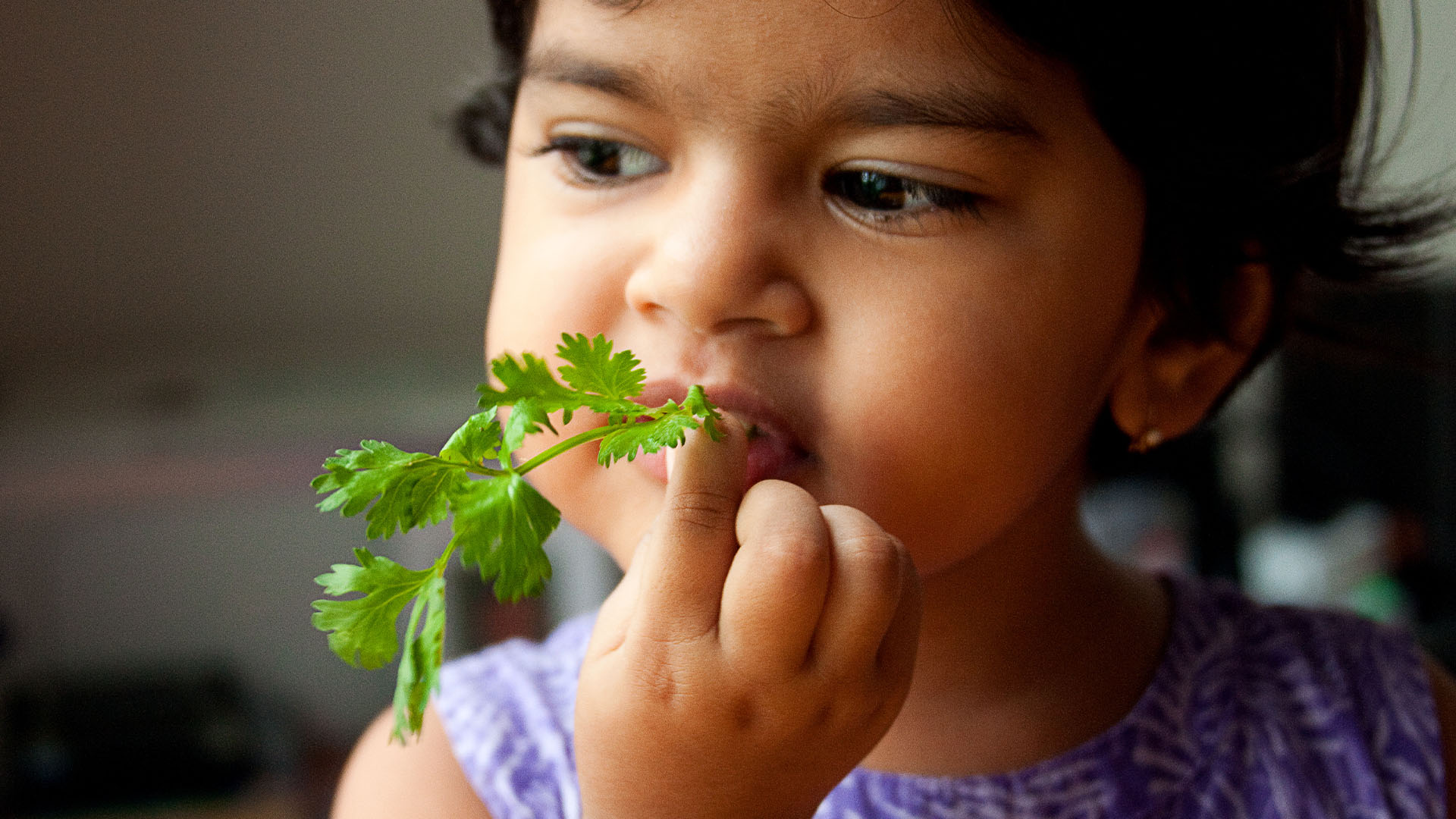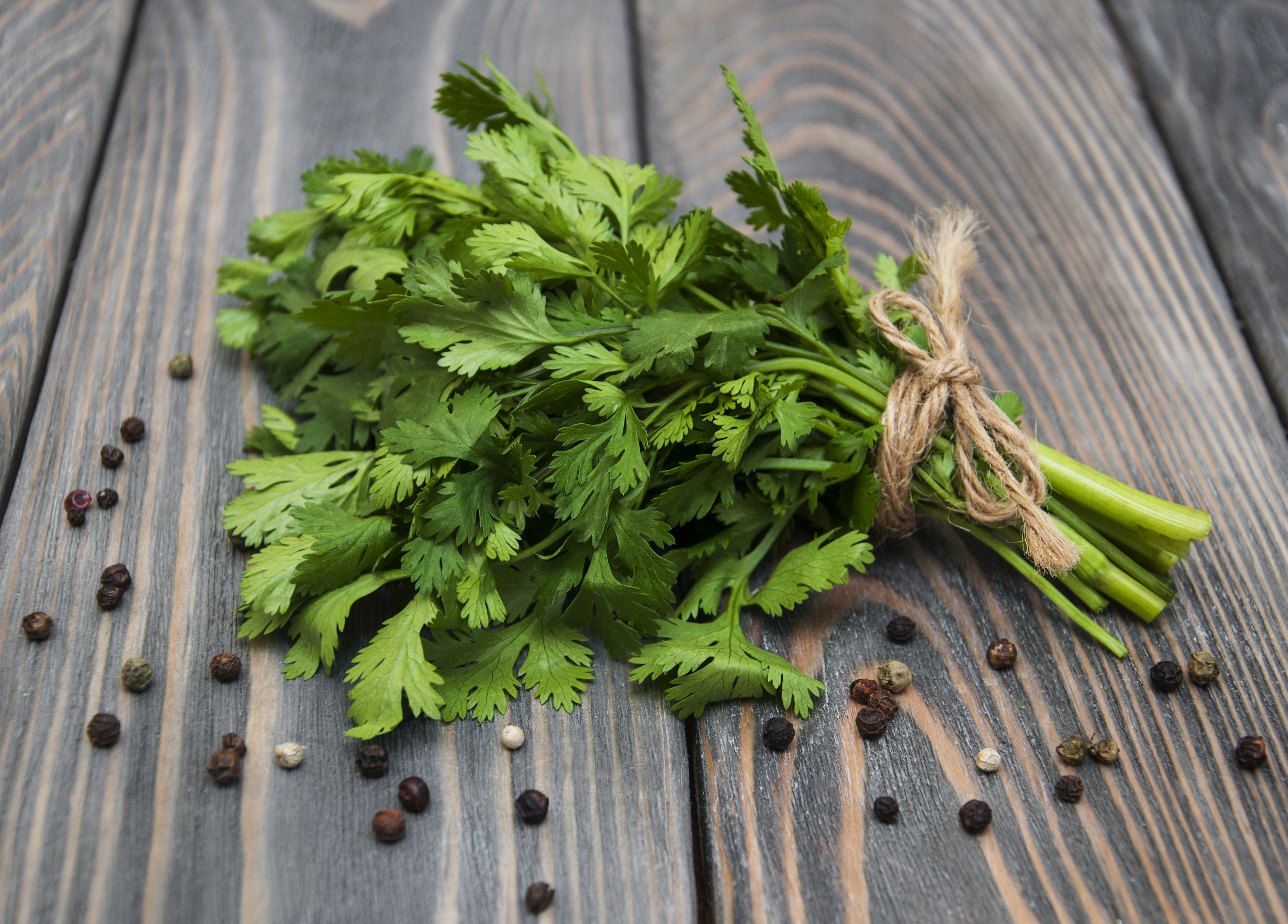Why do some people think cilantro tastes like soap?
Here's the science behind why some people hate eating cilantro, which is also known as coriander.

Cilantro is one divisive herb: People either love it or hate it. Julia Child disavowed the stuff, claiming it had a soapy taste in 1955 — and the comparison stuck. Between 3% and 21% of people, depending on their location in the world, dislike cilantro for its soapiness. But how can people have such vastly different sensations from the same herb?
Genetics plays a major role, it turns out.
It's no surprise that people have different reactions to the same food, but usually, they're responding to the same taste experience. Chilis are a classic example: Everyone experiences the burning sensation, and only some people like it.
Cilantro is different, said John Hayes, a sensory expert and professor of food science at Penn State. People describe a fundamentally different experience or sense when they consume the herb. "Nobody knows exactly which genes are involved in cilantro preference," Hayes said. But in a large observational study a specific olfactory receptor gene, OR6A2, has been implicated.
The study was done by 23andMe. The consumer DNA testing company looked at a "crude measure of sensory phenotype but over a very large population," Hayes explained.
Related: Why do lobsters turn red when they're cooked?
A 23andMe team surveyed thousands of respondents about their cilantro preference and identified a single nucleotide polymorphism (SNP) associated with cilantro aversion. The SNP lies in a cluster of genes that code for olfactory receptors, researchers at the company reported in the journal Flavour in 2012.
Get the world’s most fascinating discoveries delivered straight to your inbox.
One of those genes encodes for the receptor OR6A2, which happens to specifically bind to aldehydes that give cilantro its specific odor, according to 23andMe.
"People aren't quite sure exactly which of the many volatile aromatics cause the off-note, the soapy note [in cilantro]," Charles Spence, a professor of experimental psychology and gastrophysicist at the University of Oxford told Live Science. But the culprit seems to be some of these cilantro-specific aldehydes, organic compounds that can pack a pungent odor.
The 23and Me study also found that cilantro preference is likely heritable and varies by ethnicity, according to 23andMe's findings. Of the Southern and Northern European respondents, about 13% said cilantro tastes like soap. But only 8% of East Asian respondents and 4% of South Asian respondents were anti-cilantro. Since cilantro is a featured herb in South and East Asia, "it may be that cultures that experienced less soapiness would be more likely to adopt it," Hayes said.
Interestingly, there are records of people complaining about cilantro way back in the 1500s and 1600s, Spence said. But "how they describe it has completely changed." Before the off-taste was deemed as soapy, cilantro haters said the herb smelled like bedbugs, he said.
This change may be because our predecessors were more familiar with bedbugs than we are today. And around the time of Child's remark, soap had become more synthetic; new detergents would have contained different aldehydes than traditional soaps, maybe more similar to those in cilantro, Spence said.
Aversion to other foods, too, is influenced by genetics. A genetic variation in the receptor OR7D4, for instance, makes some people more sensitive to the smell of boar taint, an unpleasant odor in male pigs caused by the hormone androstenone. If androstenone is in pork, which happens if the male pig isn't castrated, those who are sensitive to boar taint will find the pork very unappetizing, Spence said.
On the taste side, scientists know that of the 25 genes that encode bitter taste receptors in humans, four or five contain functional polymorphisms, Hayes said, meaning there are several mutations that change the way some people experience bitter food. The gene TAS2R38 determines if you like bitter greens, like kale and Brussels sprouts, or a hoppy beer, And TAS2R31 influences preference for grapefruit juice and quinine in tonic water. "It also predicts whether you are going to like saccharin," the sweetener in Sweet'N Low, Hayes said.
Even though cilantro preference is innate, it's not concrete. Just like other food preferences, you can grow accustomed to cilantro with repeated exposure. "Biology is not destiny," Hayes said. So, even if you hate cilantro now, it's never too late to change.

Donavyn Coffey is a Kentucky-based health and environment journalist reporting on healthcare, food systems and anything you can CRISPR. Her work has appeared in Scientific American, Wired UK, Popular Science and Youth Today, among others. Donavyn was a Fulbright Fellow to Denmark where she studied molecular nutrition and food policy. She holds a bachelor's degree in biotechnology from the University of Kentucky and master's degrees in food technology from Aarhus University and journalism from New York University.




